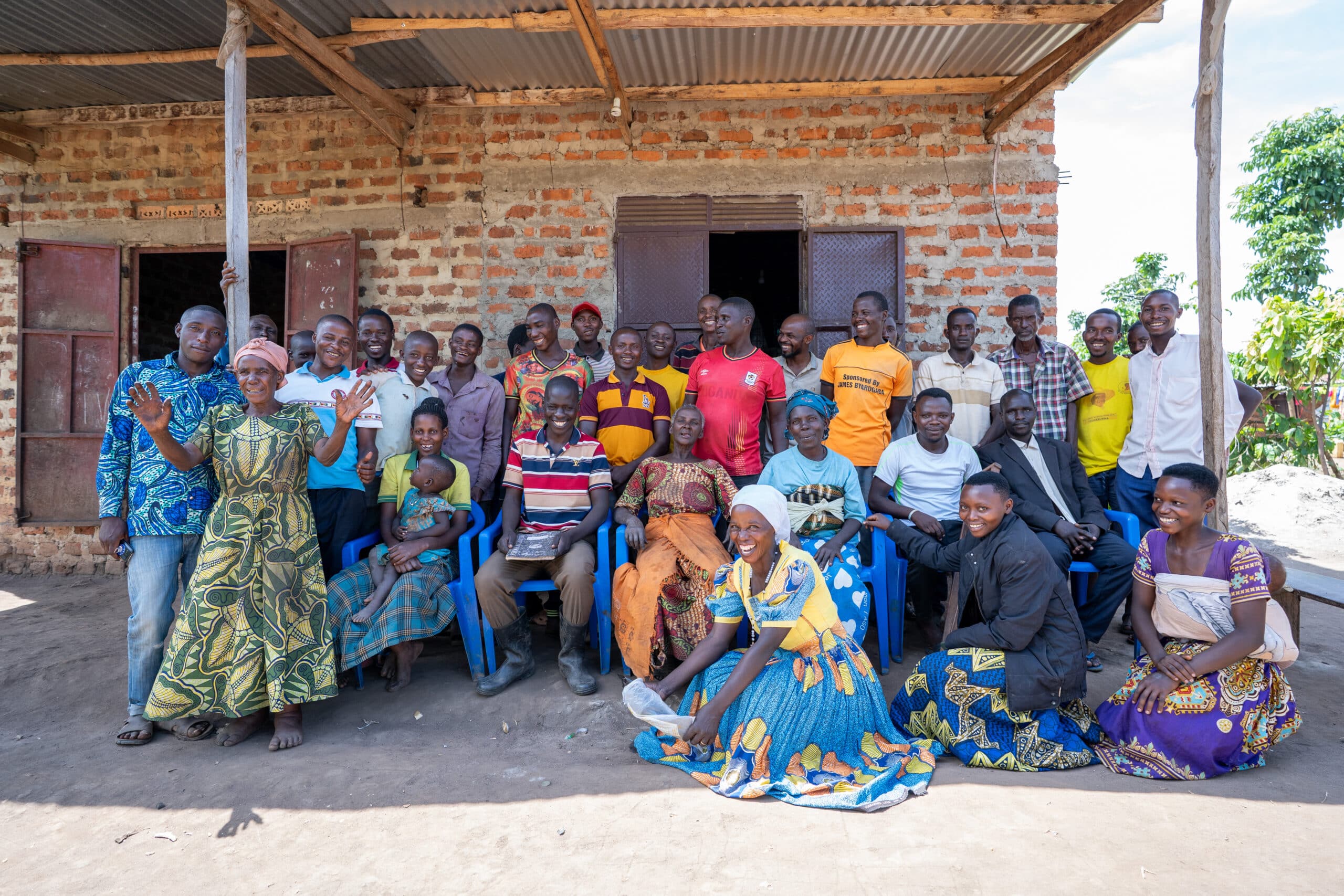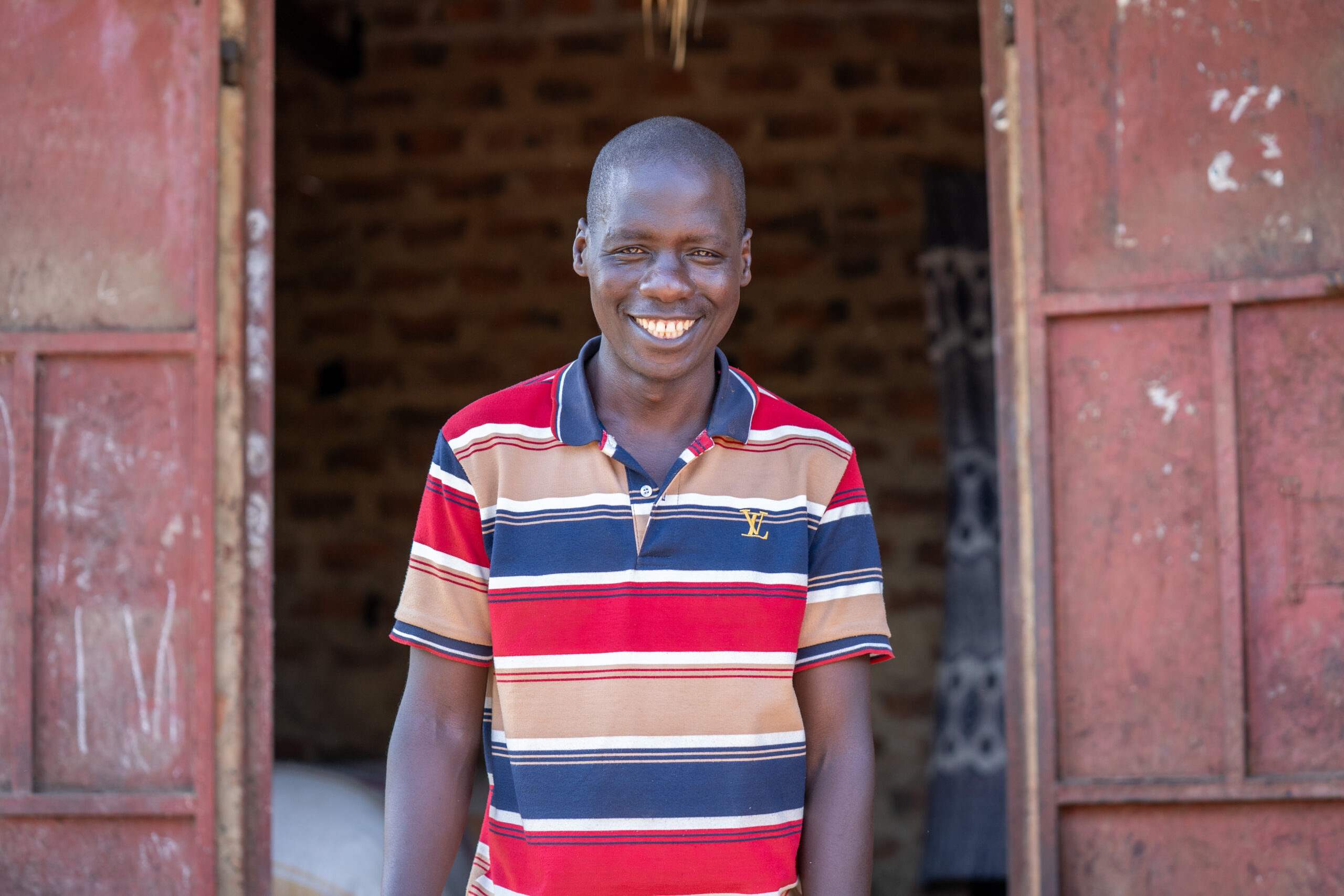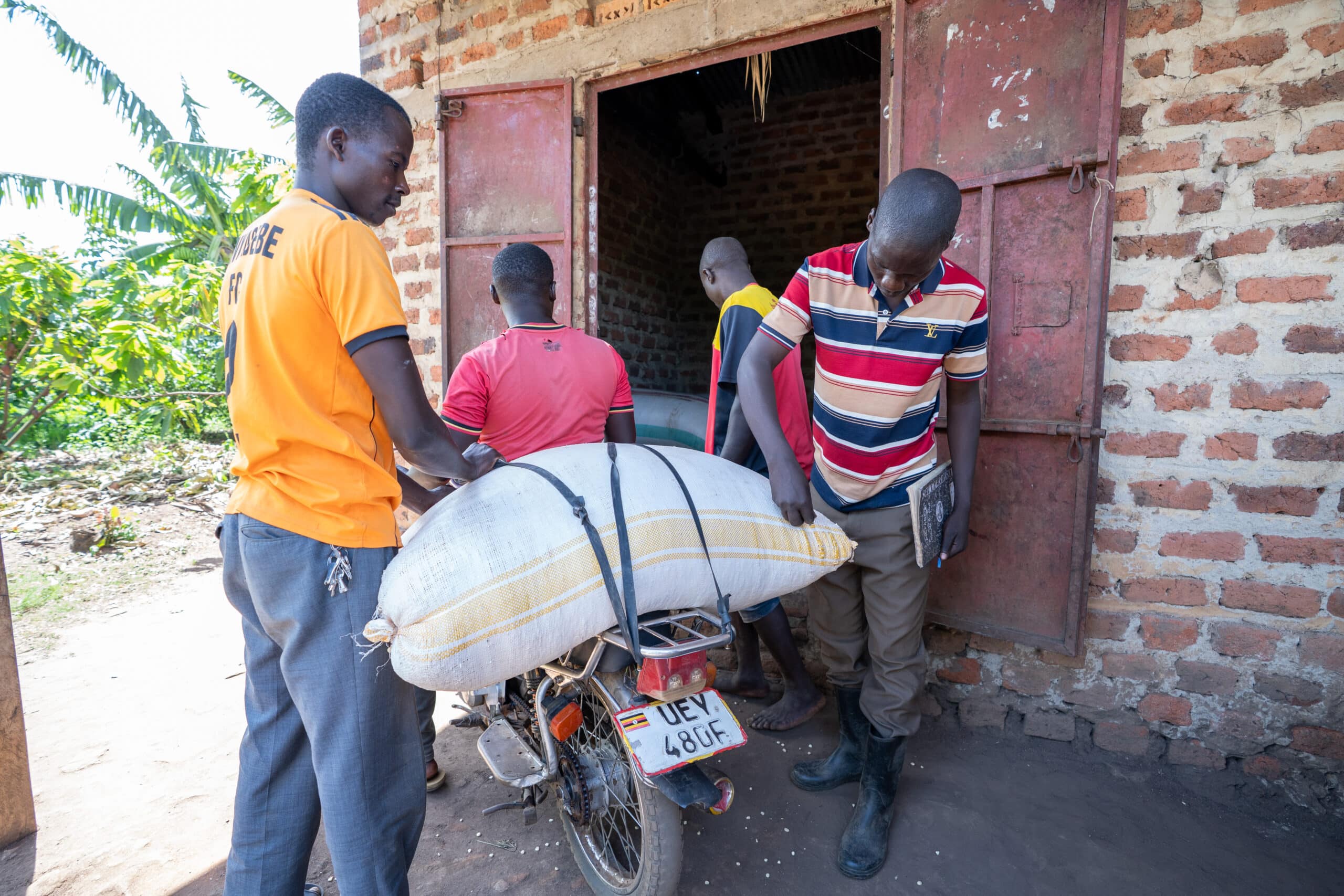Strength in Unity

Sylivano, from a remote village in Kagadi district, recounts how, individually, they would barely earn anything selling their produce until last year. “The buyers always dictated the price. Community members, with pressing needs to pay for, would agree to sell their produce at lower prices, often making losses,” he shares. Earlier, when a farmer faced financial emergencies, they would often sell straight from their gardens at rock-bottom prices. Buyers took advantage, dictating terms based on desperation rather than fair market value. “We would always sell our produce at the peak of the harvest season, when the market would be flooded by other sellers, resulting in a disadvantage for us,” he further shares.
The realization that selling as individuals and during the peak harvest season was a significant bottleneck to earning a fair price set the foundation for a fundamental change. In 2024, the community came together to form a collective marketing initiative, pooling their produce and selling it as a group. As part of a larger approach towards supporting community-led and administered credit-providing groups (Village Savings and Loans Associations or VSLAs), the community members participated in training sessions conducted by RTV on collective marketing. These sessions covered various aspects, including pooling produce, storage, record-keeping, buyer profiling, and working together as a team.

The system is run collectively by the community members, ensuring transparency and efficiency. Farmers deliver their produce, including maize, beans, and dry-hulled coffee, to a central collection point. After sales, the profits are distributed—80% goes to individual farmers, while the remaining 20% is channeled into their chosen Village Savings and Loan Associations (VSLAs). “Every member is free to check the records on specified days, most cases every Friday,” Sylivano notes, ensuring full transparency. Post-harvest techniques prevent contamination, and Sylivano ensures that the store is well-maintained. “With the three selling cycles, I’ve mastered price monitoring and negotiation by buyers,” Sylivano says proudly. No longer at the mercy of middlemen, he now negotiates with confidence, knowing bulk sales command respect—and better prices.

The journey hasn’t been without hurdles. Convincing skeptical farmers wasn’t easy. “When we were starting, some members were hesitant,” Sylivano recalls. However, after seeing the profits from the first cycle, doubters quickly joined in. He even used his own storage space for free, though he now plans to propose a small fee to sustain the initiative. Security is another concern. Sylivano stays vigilant through the night to guard the stored produce from theft. Poor roads remain a major obstacle, with buyers often deducting transport costs. Yet, despite these challenges, the benefits far outweigh the hurdles. “By selling in bulk during the off-season, we get almost twice the price for our produce compared to before,” shares Sylivano.
The success of collective marketing has sparked a shift in mindset. Sylivano himself has built his own storage facility and expanded his network of buyers. “I’ve acquired more knowledge and got more connections,” he says. Sylivano and his community’s story represent the fact that when farmers unite, they hold the power to control their prices, secure their incomes, and build a stronger future.
Be part of our journey. Support last-mile communities by supporting Raising The Village.
Let’s Stay Connected

